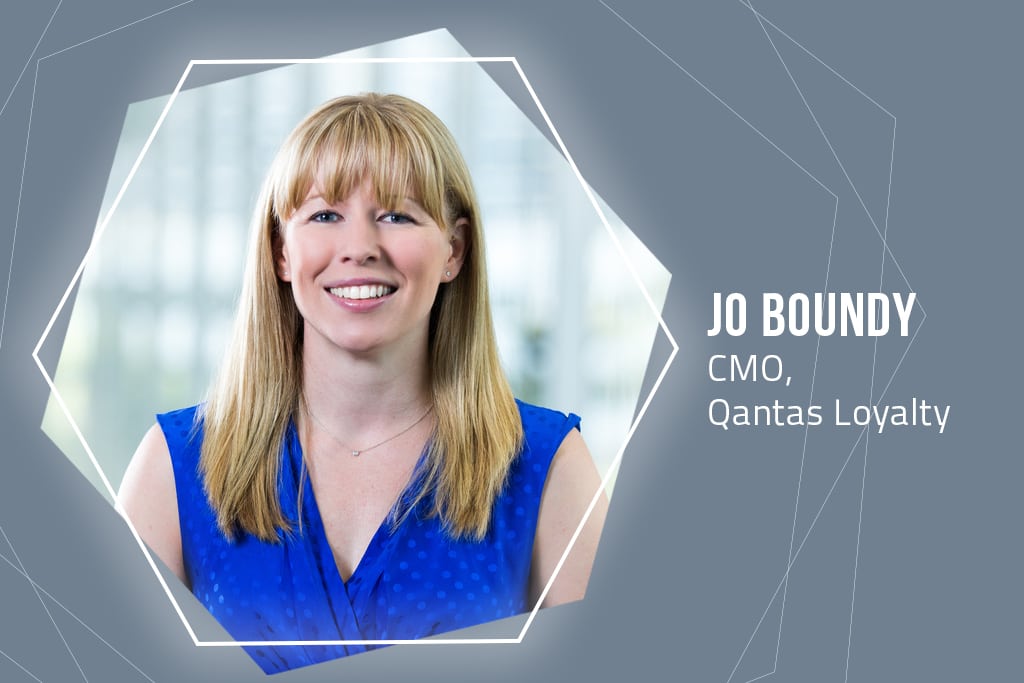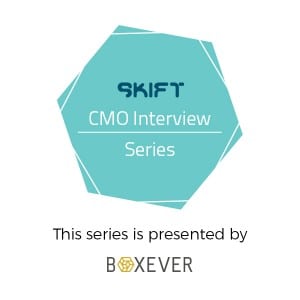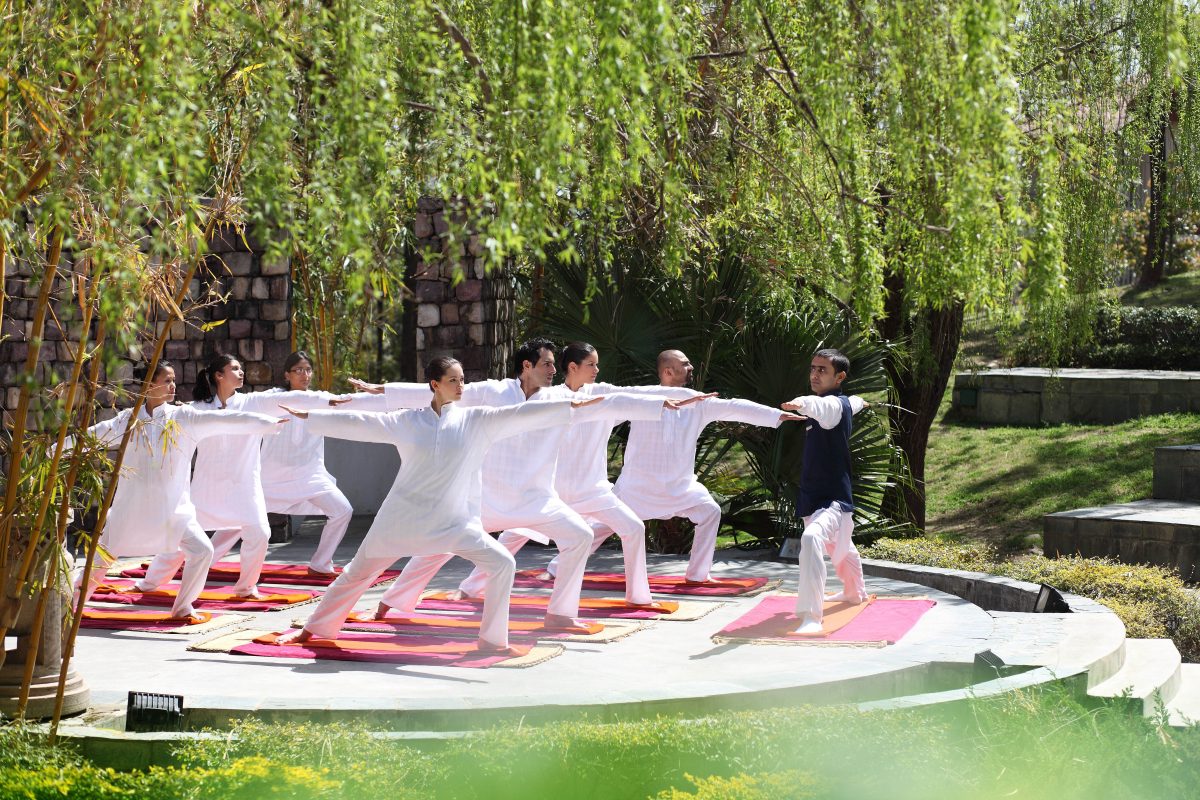Skift CMO Interviews: Qantas CMO on Marketing Through Better Loyalty

Skift Take
Editor's Note: Following our previous CEO interview series in online travel, hospitality, and destinations, Skift has launched a new series, this time focused on Chief Marketing Officers.
To better understand the big marketing challenges facing travel brands in an age when consumers are in control, Skift's What Keeps CMOs Up at Night will talk with the leading voices in global marketing from across all the industry's sectors.
These interviews with leaders of hotels, airlines, tourism boards, digital players, agents, tour operators and more will explore both shared and unique challenges they are facing, where they get insights, and how they best leverage digital insights to make smarter decisions.
This is the latest interview in the series.
National carriers play a unique role in the aviation world. They carry the promise of delivering plane after plane of fresh loads of visitors to a country's shores as well as connecting their citizens with new worlds beyond their borders.
They also are often shackled with decades of labor, operational, and other legacy issues, while having to deal with low-cost and other startups nipping at their heels. Face with the, some manage to innovate (British Airways) while others struggle to muddle through (Lufthansa).
Qantas has its own unique challenges. It has ferried people to and from Australia for over eight decades, and it's geographic isolation means it can command a deeper relationship with passengers than most carriers. In recent years it has done so through an expansive loyalty program that goes beyond just points collecting into things like wine clubs and other consumer behaviors.
Skift sat down with Jo Boundy, Qantas' new CMO for loyalty, last month shortly after she took the position. In her previous role as head of digital and entertainment at the airline, she had been responsible for the in-flight passenger experience. In her new role, she'll be responsible for their experiences long after they've left the plane.
And edited version of the interview is below.
Skift: This interview is a little unique in that you have just taken on this new roll, but you were already with the company. What was one of the biggest marketing successes for the brand in the previous year. Something you would look at and you say, "This is what inspires me to do the next thing."
Boundy: In the past 12 months Qantas has delivered a number of successful marketing campaigns, but two of the biggest standouts have been in the content marketing space.
Last year we launched our first TV show and it really opened up a whole new world for us in terms of how we could communicate with our customers. There is a real fascination about Qantas and what we do as an organization, so we let a film crew come and explore what it's all about and film our employees. It was made into an eight-episode TV show that aired on one of main channels in Australia and was such a hit, we've just confirmed a second series.
Not only did we experience a greater connection with the general public in Australia who were seeing what goes on behind the scenes of an airline, we also saw a really positive shift in engagement with our employees because we were putting them front and center and sharing the great work they do day in, day out.
We also delivered a big brand campaign called “Feels like Home” which tapped into the core emotion around travel and its ability to connect people and reunite them with their loved ones. You so often hear from Australians that when they get onboard a Qantas flight they feel like they are coming home. They are looked after so well. It's the Australian accent. It's the little nuances that make them really feel like they are home when they are in our care.
Skift: As a national carrier there are some great advantages: When you think Australia, you think Qantas. I would imagine it can be limiting in some respect in that you may not be able to pivot as quickly or do things as unorthodox as some others. How do you take chances like doing a TV program?
Boundy: Qantas has a strong history of innovation. We are 95 years old, so we are the world's oldest continuously operating airline, but we have survived by continuing to evolve and that is a core part of DNA.
In the last 24 months, we've had the world's first virtual reality in flight which was fantastic for us. We also had the world's first TEDx Talk in the sky and we've got some pretty cool developments in the pipeline in the health and wellbeing space.
Our frequent flyer program offers some innovative ways to earn and use points too. Traditionally loyalty has been about earning points for travel, but we've got a whole portfolio of different ways that you can earn points. We have actually just launched Qantas Assure which offers our Australian frequent flyers the opportunity to earn points just for exercise when they take out health insurance and monitor their steps using our App and their wearable technology.
We constantly have to change and reinvent, but that is really what success is all about and the main reason we've managed to celebrate 95 years.
Skift: In terms of the loyalty program, how important is it for Qantas in terms of controlling the direct relationship with the consumer?
Boundy: One in every two Australians are part of the Qantas Loyalty program. It is a really valuable asset for Qantas and for our customers. There are many ways they can earn and use points with Qantas Loyalty beyond being a 'frequent flyer', but the key opportunity it gives us is to build a relationship with our customers.
Once our members sign up they tend to be a Qantas Frequent Flyer for life and as such we need to offer them a range of rewards which continue to be relevant to them across their different life stages, whether they regularly fly or not.
Skift: What keeps you up at night as a marketer and as you are heading into this role now?
Boundy: What keeps me up at night? I would probably say it is around the stickiness of the customer relationship and how we get smarter about building that relationship.
So much of marketing, and particularly loyalty marketing, is all based around data and analytics and for me it's got to be the perfect confluence of science and creativity. As a marketer in today's modern age, you have to make sure you have the perfect blend of these two pieces. For me going into a new role and looking down the barrel of Chief Marketing Officer for Qantas Loyalty, the biggest challenge will be how we make best use of the information we have to deliver the most valuable program we can for our customers.
Skift: What excites you about new marketing vehicles, from traditional social media like Facebook and then newer social media like Snapchat or messaging?
Boundy: The biggest thing that has changed marketing in the last five years is social media. We have gone on a very rapid journey where we have moved from more traditional social media platforms such as Facebook and Twitter and we are now playing in a space where we've got a whole lot of new applications, in particular the messaging platforms.
The thing that really excites me about the messaging platforms is it's opening up a whole new gateway to communicate with our customers. Again it's not just about sending direct mail out, it's not just about billboards and campaigns that you might see on the side of the road or on the TV, it is about being able to create a direct one-to-one relationship with someone in an environment they are actually participating in.
I think the new social media applications and particular the messaging applications are opening up a whole new world for marketers. I think it's only the tip of the iceberg. I don't think we all know exactly what we can do with them yet, but I am really excited to see how that develops, particularly in the travel space.
Skift: Have we reached peak safety video yet?
Boundy: We have recently launched a new safety video at Qantas. It was a new approach for us because for the last few years we have had a more traditional safety video.
The safety video is one of the last unique pieces of content that people are required to watch. We carry 30 million passengers a year and every single one of those passengers has to watch the safety video.
Safety is our number one priority and is not a laughing matter so we weren't going to play copycat and compete with other airlines which had comical safety videos. For us it was about doing something in a new and creative way to capture the audience.
We created a piece of content that reflected our two core values – safety and Australia. The result is something that we believe is really special and powerful, but warm, funny and down to earth at the same time, because it's about everyday Australians.
We shot it at 17 destinations around Australia and featured 'real' Australian people – there are no actors in there. It also forms the basis of a new tourism campaign and we are working with Tourism Australia to promote the locations featured.
We're confident that it's going to grab people's attention and get them focused on the safety information that every Qantas customer needs to know.
This series is presented by Boxever. The Skift content team maintains complete editorial control over these interviews and the selection of subjects.
For more insights from Boxever, please see the following reports:
- Free Skift Report: The Psychology of Customer Experience
- Free Skift Report: The Habits of Travel Bookers: How Americans Take Vacation
- Free Skift Report: What Travel Brands Can Learn from Behavioral Economics






